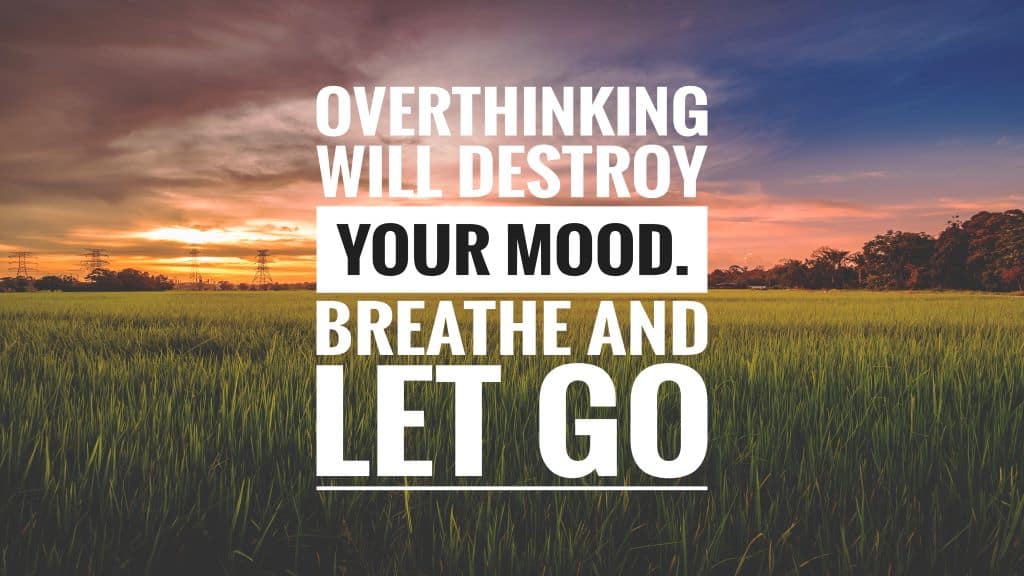According to the World Health Organization (WHO), an estimated 280 million people worldwide become depressed, making it the leading cause of disability. Approximately 10 million Americans suffer from seasonal affective disorder during the winter months. That condition comes from a lack of sun exposure, which can reduce circadian rhythms. With winter fast approaching, depression can set in without much warning. So, getting out of that mindset can sometimes seem virtually impossible at times.
Here are eight signs you’re becoming depressed:
Depression can seem debilitating and suffocating. But if you know the signs to look out for, you can take steps to prevent it. At the very least, you’ll understand how to treat yourself well.
1. You’ve lost interest in activities you used to enjoy.
Many people with depression find that they have no interest in doing much of anything. Indeed, just getting out of bed can seem like an insurmountable task most days. People who are depressed try to engage in things they once found enjoyable. However, they don’t find these activities pleasurable anymore. For example, if you once loved to dance, but just the thought of getting up and moving seems like torture, you might be depressed.
If you find you’ve lost interest in almost everything, including friendships, social outings, exercise, food, and sex, consider using positive affirmations, meditation, yoga, and natural remedies to help you regain control of your mental health.
2. You have lost your appetite or overeat regularly.
Another common symptom of depression is either overeating or losing interest in food altogether. Gary Kennedy, MD, director of geriatric psychiatry at Montefiore Medical Center in Bronx, New York, says, “A sudden change in weight, either gaining or losing, can be a warning of depression, especially in someone who has other symptoms of depression or a history of depression.”
Both scenarios can lead to severe complications, so if you notice yourself having no appetite or eating to appease your emotions, you could be depressed.
3. You’ve developed insomnia.
Many adults with depression have trouble falling or staying asleep. Patients who have chronic insomnia have triple the chance of developing depression compared to those who don’t suffer from insomnia. Many doctors believe that by treating insomnia, most patients would see a drastic decrease in their depression symptoms. While a couple of nights of tossing and turning don’t signal depression, being unable to fall and stay asleep over weeks or months could point to a deeper issue.
If you find that you have trouble sleeping most nights, and you’ve noticed this happening consistently over a long period, you might suffer from depression.
4. You feel tired all the time.
One of the most significant warning signs of depression is a lack of energy, which stems from the inability to sleep at night or the constant feelings of hopelessness and despair that plague the mind. Both of these can cause severe exhaustion, which makes it difficult for those with depression to get out of bed most days. However, you can combat these feelings by eating a healthy diet, drinking plenty of water, exercising, and socializing even if you don’t feel like it. Also, make sure you don’t schedule too much in one day so that you don’t become overwhelmed.
5. You isolate yourself more often than not.
Many people with depression find that they don’t feel like being around friends and family as much. In fact, socializing with anyone can seem almost painful. That’s because the patient feels as though they cannot connect with anyone anymore. However, isolating yourself will only make the depression worse. So try to go out with a small group of friends fairly regularly, and tell them how you’re feeling.
Most of all, don’t feel ashamed of being depressed. Indeed, many people go through it from time to time in their life. So even if you have chronic depression, you have options for treatment.
Being alone with your thoughts all the time will only perpetuate the illness, so try to socialize even if it feels uncomfortable. Humans are social creatures, and cannot survive without some interaction, so don’t deprive yourself of these experiences.
You should also consider joining a support group for depression, as talking about it can help you to discover new thinking patterns and ways of coping with the illness.
6. You have difficulty focusing and listening to others.
Depression can make you feel like you have a constant fog inundating your brain, making it hard to concentrate or remember important facts and events. You might also find yourself tuning in and out of conversations, and having trouble formulating responses.
“Research has suggested that processing speed — the ability to take in information quickly and efficiently — is impaired in individuals who are depressed,” said Natascha Santos, PsyD, a psychologist and behavior therapist in Great Neck, N.Y.
Without proper treatment, serious cognitive impairments can occur over time. Meditation and relaxation techniques can help greatly with mental clarity and focus, so make sure to give yourself time each day for self-care and mindfulness training.
7. You feel sad, hopeless, and worthless.
Everyone feels these emotions occasionally, but those who are depressed feel them much more frequently. People with depression can get sucked into a vortex of negativity. So finding their way out can seem overwhelming and impossible. Getting a grip on these feelings doesn’t happen overnight. But you can shift into a more positive mindset with proper affirmations, relaxation, and mindfulness meditation.
Also, don’t hesitate to talk about your feelings with loved ones. They can support you through difficult times, and offer advice when you need it the most.
8. You have regular headaches and digestive issues.
According to Everyday Health, 40% of people with migraines also suffer from depression. Many people don’t attribute chronic headaches to depression, but the two go hand in hand in many cases.
“Migraines and depression have common underpinnings in the brain, which can develop due to environmental factors, genetic causes, or a combination of both,” Dr. Lipton, a professor and vice chairman of neurology and a professor of epidemiology and population health at the Albert Einstein College of Medicine, says. “Migraine pain and depression are also linked because both conditions respond to some of the same medications.”
Also, your brain and gut are connected, and linked together by the vagus nerve. This nerve sends signals from your stomach to your brain, affecting hunger cues and overall appetite. Your emotions have a profound effect on your digestive health. For instance, have you ever noticed that when you feel anxious, your stomach feels tied up in knots, and you might have an upset stomach? This clearly shows that our emotions powerfully affect our mental health. So, by calming our minds and regaining mental clarity, we can control what sort of signals our gut sends to our brain.

















